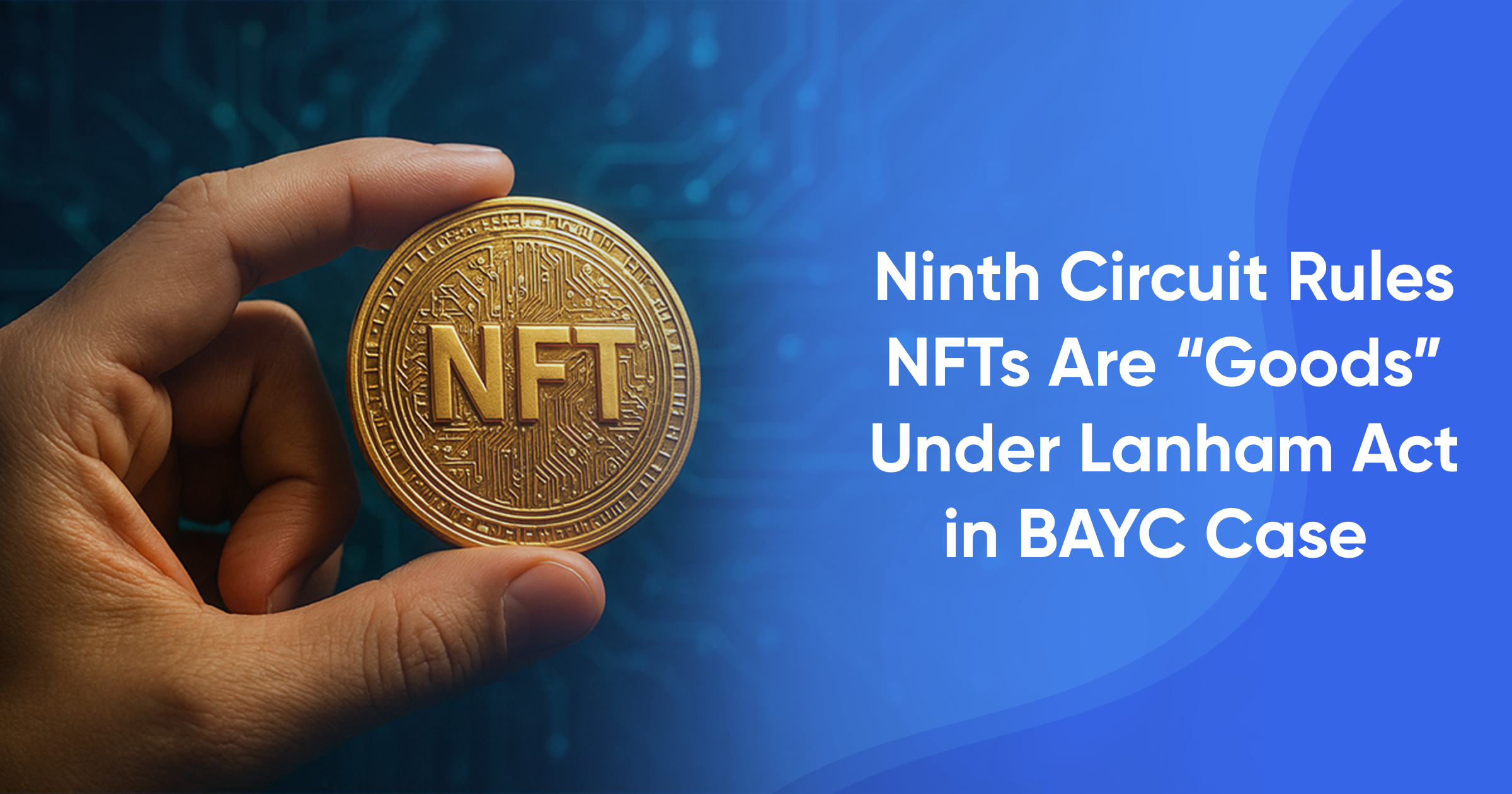Can NFTs be treated as goods under US trademark law? The US Court of Appeals for the Ninth Circuit answered this in July 2025. In Yuga Labs, Inc. v. Ryder Ripps and Jeremy Cahen, the court made a key ruling. It found that NFTs are “goods” under the Lanham Act. But it also reversed a lower court’s decision on trademark infringement. The case involved one of the world’s most famous NFT brands, the Bored Ape Yacht Club (BAYC). Let’s explore these case details in depth.
Background of the dispute
Yuga Labs created the BAYC NFT collection through a smart contract on Ethereum. Each NFT had a unique cartoon ape image and an ape ID. Buyers received commercial and personal rights to the artwork without royalty fees.
Ryder Ripps and Jeremy Cahen launched a separate NFT collection called Ryder Ripps Bored Ape Yacht Club (RR/BAYC). They used the same images and ape IDs from BAYC. Their stated goal was satire and criticism of Yuga. They accused Yuga of using offensive imagery and symbolism.
The RR/BAYC NFTs were also hosted on Ethereum. Ripps named the smart contract “Bored Ape Yacht Club” and used “BAYC” as its symbol. The RR/BAYC website said it was a “new mint of BAYC imagery.” NFT marketplaces displayed the name “Bored Ape Yacht Club” with the handle “@ryder_ripps.”
Yuga’s legal claims
Yuga sued for false designation of origin, false advertising, and cybersquatting. It also challenged the use of BAYC trademarks. The defendants argued they had fair use and First Amendment protection. They also claimed Yuga had no enforceable trademark rights.
The district court granted summary judgment to Yuga on false designation of origin and cybersquatting. It awarded Yuga profits, maximum statutory damages, and attorneys’ fees. The court also issued a permanent injunction.
NFTs as “Goods”
On appeal, the Ninth Circuit addressed whether NFTs qualify as “goods” under the Lanham Act. The court said yes. It relied on a US Patent and Trademark Office report. The judges explained NFTs are bought as commercial goods in online marketplaces.
BAYC NFT buyers also received access to Yuga merchandise, celebrity events, and social club membership. This supported the conclusion that NFTs function as goods in commerce.
Trademark rights
The defendants argued Yuga lost its rights by selling NFTs as unregistered securities. The Ninth Circuit disagreed. It found no clear link between the BAYC trademarks and any securities violations.
The court also ruled Yuga kept ownership of its trademarks. The BAYC terms gave buyers rights to the artwork, but not the BAYC marks. Yuga did not abandon its trademarks and had taken steps to police them.
Infringement claim
The Ninth Circuit found problems with the district court’s trademark infringement ruling. The lower court had not fully analyzed all eight Sleekcraft factors for likelihood of confusion.
The judges said it was not clear as a matter of law that consumers would be confused. They noted the defendants’ use did not qualify as nominative fair use. The First Amendment also did not shield them because they used the marks to sell their own NFTs.
Cybersquatting claim
The Ninth Circuit also reversed the cybersquatting ruling. It found that the domains “rrbayc.com” and “apemarket.com” were not confusingly similar to BAYC marks as a matter of law. The differences in name and meaning were significant.
Counterclaims
The defendants’ DMCA and copyright counterclaims failed. The court found no material misrepresentation in Yuga’s DMCA notices. It also upheld dismissal of the declaratory judgment claim with prejudice.
What this ruling means for NFT creators and brand owners
This case is a landmark in NFT trademark law. The Ninth Circuit confirmed NFTs can be “goods” under the Lanham Act. But it also showed that proving confusion is not always straightforward. The ruling sends a message to NFT creators and brand owners alike.
Not only in the US in India also there are many cases of trademark and copyright misuse. If you need help with NFTs, brands, or online goods, reach out to Trademarkia India. Our legal experts aid you in every step through registration, protection, and enforcement.

